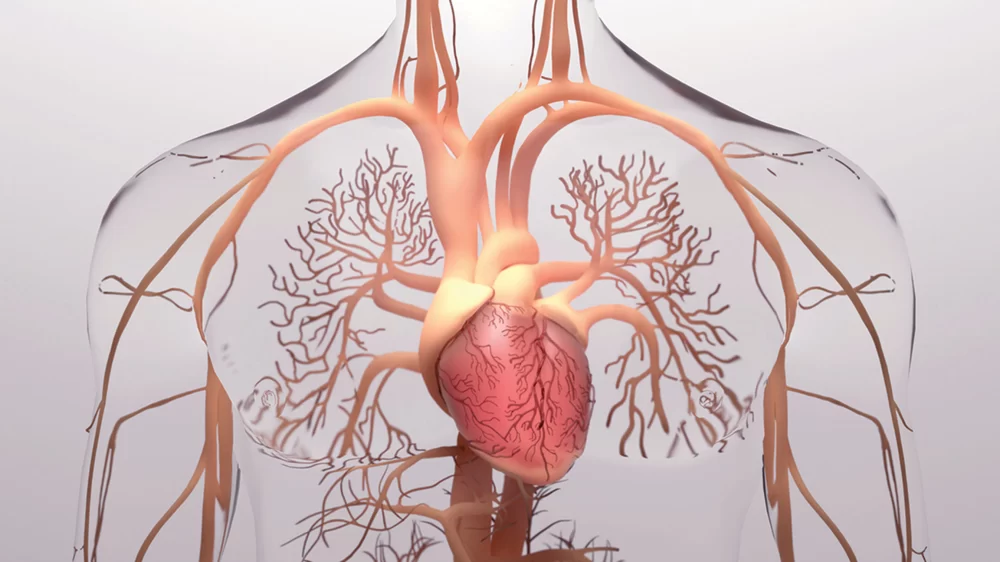The Link Between Mental Health and Heart Disease
It wasn’t until I started experiencing periods of intense stress and anxiety that I truly understood the deep connection between mental health and heart disease. Like many people, I assumed that heart problems were primarily caused by physical factors such as diet or lack of exercise. But as I learned more about the relationship between emotional health and heart health, I realized that mental well-being plays a significant role in the condition of our hearts. If you’ve ever found yourself under stress or struggling with anxiety, you might be surprised to learn just how much these emotions can impact your cardiovascular system.
Throughout this article, I’ll share my personal experiences and scientific insights to help you better understand how mental health can influence heart disease, how these two are connected, and what we can do to mitigate the risks. Understanding this link is not only crucial for preventing heart disease but also for improving our overall quality of life.

1. The Role of Stress in Heart Disease
Stress is something we all experience at different times in life. Whether it’s work pressures, personal challenges, or financial worries, stress is inevitable. However, what I’ve come to learn is that chronic stress can have a direct and lasting impact on our heart health. Studies have shown that long-term stress can increase the risk of developing heart disease by raising blood pressure, increasing heart rate, and contributing to unhealthy habits like poor eating or smoking. I personally began noticing that during stressful periods, my heart rate would spike, and I often felt exhausted and out of breath.
One of the key ways stress affects the heart is by triggering the release of stress hormones like cortisol and adrenaline. These hormones prepare the body for a “fight or flight” response, which causes blood vessels to constrict and the heart to beat faster. While this response is useful in short bursts, when it’s prolonged, it can increase blood pressure and put strain on the cardiovascular system, leading to long-term damage. Research has even found that people who experience high levels of stress over extended periods are at a higher risk of having heart attacks or strokes.
Capital Health Medical Center – Hopewell
capital health medical center hopewell
1 Capital Way, Pennington, NJ 08534, USA

2. Anxiety and Its Impact on the Heart
Anxiety is another mental health condition that can profoundly affect the heart. I know from my own experiences that anxiety can lead to feelings of tightness in the chest, rapid heartbeat, and shallow breathing—all of which are physically taxing on the heart. But what’s even more concerning is that chronic anxiety has been linked to an increased risk of heart disease. According to studies, individuals with anxiety disorders are more likely to have high blood pressure, heart palpitations, and even heart attacks.
One study conducted by the American Heart Association found that anxiety disorders were associated with a higher risk of heart disease, particularly among women. The constant state of worry and unease that accompanies anxiety can cause the body to remain in a heightened state of alertness, which leads to increased heart rate and higher blood pressure. This ongoing strain on the cardiovascular system can increase the likelihood of developing heart problems over time.
3. Depression and Heart Disease: A Dangerous Combination
Depression is another major mental health issue that is closely connected to heart disease. I’ve witnessed firsthand how depression can take a toll not only on one’s emotional state but also on physical health. Studies have shown that depression can increase the risk of heart disease by influencing a variety of factors, including increased inflammation, poor diet choices, and lack of physical activity. Depression has also been shown to affect the body’s ability to regulate blood pressure, making individuals more susceptible to hypertension, a major risk factor for heart disease.
There is a complex relationship between depression and heart disease. People who suffer from depression are often less likely to engage in healthy behaviors like exercising, eating a balanced diet, and managing stress. This lack of self-care can worsen heart health over time. In fact, research indicates that individuals with depression are at a higher risk of developing heart disease, and those who already have heart disease may experience more severe outcomes due to their depression.
4. The Effects of Poor Sleep on Heart Health
One area I didn’t initially connect with heart health was sleep. But after learning more about how poor sleep can impact both mental health and cardiovascular health, I realized just how important it is to get enough rest. Lack of sleep has been shown to increase the risk of both mental health issues and heart disease. Sleep deprivation can lead to increased levels of stress and anxiety, which, as I mentioned earlier, can contribute to heart problems. At the same time, poor sleep itself can directly affect heart health by increasing blood pressure, heart rate, and inflammation.
In my case, I noticed that when I didn’t get enough sleep, my stress levels were higher the next day, and I was more likely to make unhealthy choices like eating junk food or skipping exercise. It’s no surprise that poor sleep can lead to a vicious cycle where mental health problems exacerbate physical health problems, particularly those related to the heart.
5. Social Support and Its Protective Role for the Heart
Throughout my journey of learning about heart health, one of the most important factors I discovered was the role of social support. Having a strong social network and a support system has been shown to have a protective effect on both mental and heart health. When we feel emotionally supported, whether it’s by family, friends, or a therapist, we’re more likely to cope better with stress and anxiety, which can reduce the strain on the heart. Personally, I’ve found that talking to a close friend or family member when I’m feeling stressed or anxious can provide immediate relief and help keep my heart health in check.
Studies have demonstrated that people with strong social ties are less likely to develop heart disease and are more likely to recover from heart-related events like heart attacks. Social connections provide a buffer against the harmful effects of stress, and they can help improve mood and emotional well-being, which in turn benefits heart health.
6. How to Improve Mental and Heart Health Together
Improving both your mental and heart health requires a holistic approach that includes managing stress, practicing self-care, and adopting healthy lifestyle habits. I started focusing on activities that helped me relax, such as meditation, yoga, and spending time outdoors. Exercise, which I now make a part of my daily routine, has had a dual benefit: not only does it improve my heart health, but it also boosts my mood and reduces feelings of anxiety. Regular physical activity, even just a brisk walk or light stretching, can help improve circulation, reduce stress, and regulate hormones that affect both the heart and the mind.
Additionally, seeking professional help for mental health issues like anxiety or depression can significantly improve both emotional and physical health. Therapy, counseling, or medication (if necessary) can help manage mental health conditions and reduce their impact on the heart. In my case, speaking with a counselor and learning stress-management techniques has been life-changing for my emotional and physical well-being.
Finally, prioritizing a heart-healthy diet is essential. Foods rich in omega-3 fatty acids, like fatty fish, nuts, and seeds, are known to reduce inflammation and support mental well-being. By focusing on nutrition, exercise, and stress management, I’ve been able to keep both my heart and mind in better shape.






















Deborah Heart and Lung Center
deborah heart and lung center
200 Trenton Rd, Browns Mills, NJ 08015, USA